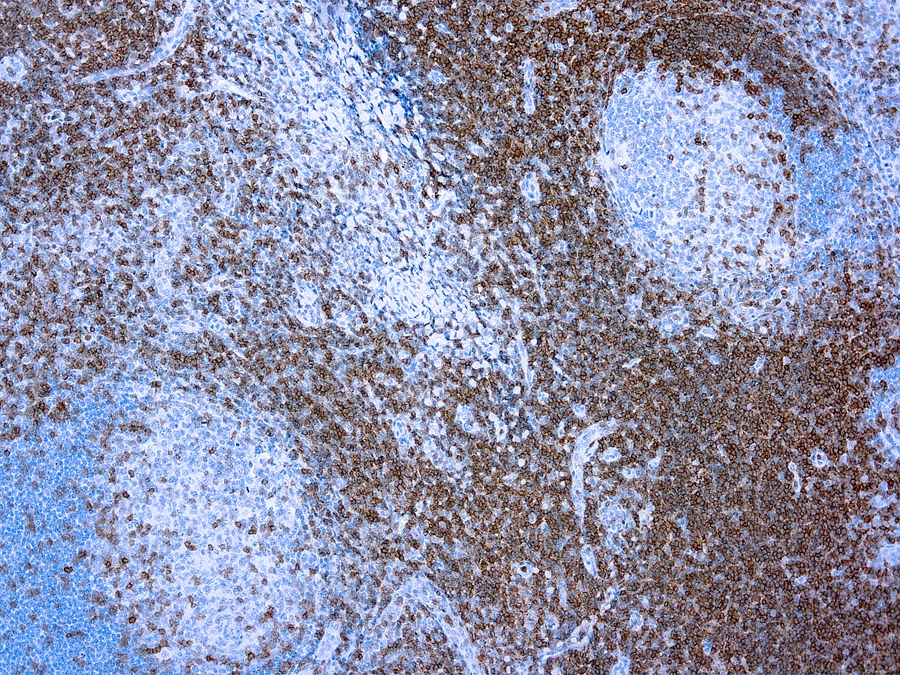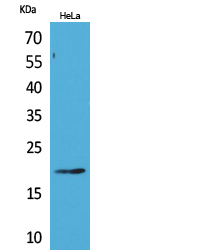
IHC-P analysis of human tonsil tissue using GTX20828 CD3 antibody.
CD3 antibody
GTX20828
ApplicationsImmunoHistoChemistry, ImmunoHistoChemistry Paraffin
Product group Antibodies
TargetCD3D
Overview
- SupplierGeneTex
- Product NameCD3 antibody
- Delivery Days Customer9
- Application Supplier NoteIHC-P: 1:10-1:50. *Optimal dilutions/concentrations should be determined by the researcher.Not tested in other applications.
- ApplicationsImmunoHistoChemistry, ImmunoHistoChemistry Paraffin
- CertificationResearch Use Only
- ClonalityPolyclonal
- ConjugateUnconjugated
- Gene ID915
- Target nameCD3D
- Target descriptionCD3 delta subunit of T-cell receptor complex
- Target synonymsCD3-DELTA, CD3DELTA, IMD19, T3D, T-cell surface glycoprotein CD3 delta chain, CD3 antigen, delta subunit, CD3 delta, CD3d antigen, delta polypeptide (TiT3 complex), CD3d molecule, delta (CD3-TCR complex), OKT3, delta chain, T-cell receptor T3 delta chain
- HostRabbit
- IsotypeIgG
- Protein IDP04234
- Protein NameT-cell surface glycoprotein CD3 delta chain
- Scientific DescriptionThe protein encoded by this gene is part of the T-cell receptor/CD3 complex (TCR/CD3 complex) and is involved in T-cell development and signal transduction. The encoded membrane protein represents the delta subunit of the CD3 complex, and along with four other CD3 subunits, binds either TCR alpha/beta or TCR gamma/delta to form the TCR/CD3 complex on the surface of T-cells. Defects in this gene are a cause of severe combined immunodeficiency autosomal recessive T-cell-negative/B-cell-positive/NK-cell-positive (SCIDBNK). Two transcript variants encoding different isoforms have been found for this gene. Other variants may also exist, but the full-length natures of their transcripts has yet to be defined. [provided by RefSeq, Feb 2009]
- Storage Instruction2°C to 8°C
- UNSPSC12352203







